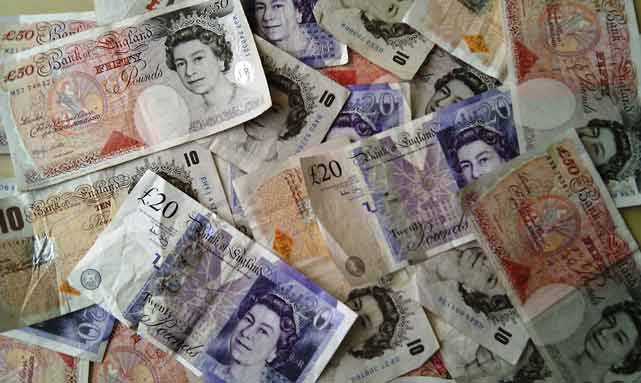GBP/NZD Slides Amid Weak USD


The Pound New Zealand Dollar (GBP/NZD) exchange rate fell through the course of last week’s session, pressured by weak UK data as well as the appreciation of the New Zealand Dollar (NZD). As the US Dollar (USD) was battered by lower-than-forecast inflation in the States, risk-on currencies such as the ‘Kiwi’ were able to climb.
At the time of writing, GBP/NZD is trading at NZ$2.0690, having weakened by more than 0.4% in the past seven days.
New Zealand Dollar (NZD) Strengthened by USD Losses
The New Zealand Dollar trended broadly higher through Monday to Friday, as currency market dynamics favoured risk-on currencies. Moreover, the ‘Kiwi’ was supported by a hawkish Reserve Bank of New Zealand (RBNZ) as well as better-than-expected Australian data.
At the start of the week, NZD traded in a mixed range. Relative strength in the Australian Dollar (AUD) helped to cap losses, but USD optimism following the previous Friday’s US jobs data simultaneously pressured the currency.
On Tuesday, weaker-than-forecast Australian data failed to dent the ‘Kiwi’, however; high interest rates in New Zealand lent support to the currency alongside hopes of higher inflation rates in China.
Into Wednesday’s Asian session, the anticipated Chinese inflation data missed forecasts – yet NZD strengthened after an initial downturn as US inflation fell short. Hawkish sentiment surrounding the Federal Reserve’s monetary policy outlook faltered, buoying the risk-on New Zealand Dollar.
On Thursday, the ‘Greenback’ regained some of its losses, following the delivery of a hawkish monetary policy statement from the Fed. The stronger US Dollar spelled headwinds for the ‘Kiwi’, which trended sideways against the Pound (GBP) despite strong Australian employment data.
Into the late Asian session, the latest business PMI from New Zealand printed below expectations at 47.2 – deeper into contraction territory. This further weighed upon the ‘Kiwi’, which extended its downtrend into Friday.
Pound (GBP) Sinks as Joblessness Climbs, Economy Stagnates
The Pound faced multiple headwinds last week, causing the currency to tumble against the majority of its peers. A lack of data on Monday left Sterling trending sideways; into Tuesday, rising unemployment exerted additional pressure on GBP exchange rates, although rising wages reinforced expectations of a hawkish Bank of England (BoE).
Yael Selfin, the chief economist at KPMG UK, commented upon the data: ‘The unemployment rate ticked up to 4.4%. The recent weakening in demand for staff has been attributed to a lack of roles and firms delaying hiring decisions.’
Midweek, GBP/NZD plummeted; although the Pound firmed against the US Dollar as US inflation missed forecasts. Following the release of the consumer price data, a surge of support for risk-on currencies boosted Sterling against its risk-off counterparts but depressed GBP in exchange rates with such currencies as the ‘Kiwi’ and the Australian Dollar.
While expected, a GDP print of 0% for the month of April further sapped Sterling appeal on Wednesday. Although the three-month average GDP reading revealed expansion, economists’ assessment of the situation was bleak. The Office for National Statistics (ONS) remarked that the release marked the weakest performance in four months, as investors feared that data could prompt an earlier interest rate cut from the Bank of England.
On Thursday, the Pound wavered amid a lack of significant data; subsequently, GBP/NZD managed to claw back some of its losses at the end of the week. Supporting Sterling was renewed confidence that the BoE would enact just a single interest rate cut this year, despite labour market concerns.
GBP/NZD Exchange Rate Forecast: BoE Interest Rate Decision in Focus
The Pound New Zealand Dollar exchange rate is likely to trade this week upon UK inflation data and subsequently the Bank of England’s interest rate decision and commentary on Thursday.
The BoE is widely expected to keep interest rates on hold, and to reiterate recent hawkish rhetoric. However, softening inflation could undermine investors’ confidence in a bold monetary policy outlook, compromising Sterling performance.
Elsewhere, Monday could see the ‘Kiwi’ fluctuate as Australian consumer confidence is expected to weaken while retail sales in China climb. A hawkish interest rate decision from the Reserve Bank of Australia (RBA) on Tuesday could boost NZD, though a stagnating economy according to Wednesday’s data may reverse gains.
On Friday, a recovery in UK retail sales could support the Pound alongside growth in the manufacturing and service sectors. Meanwhile, if credit card spending increased in New Zealand, it could indicate a recovery in consumer spending power – buoying NZD.
Source link






